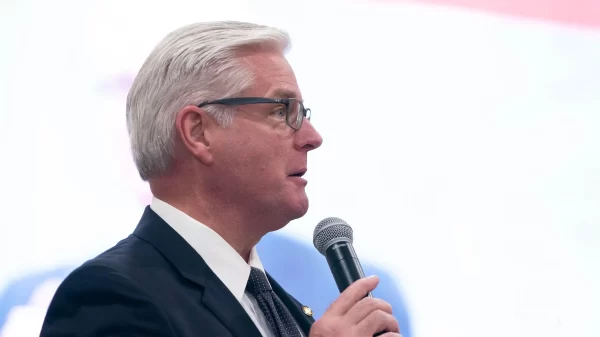The second year of the reign of Governor Kay Ivey may give her a second major accomplishment in the first two years of her term as governor.
In her first year, she spearheaded the measure to increase the state’s gasoline tax in order to allow Alabama to proceed with a much-needed massive infrastructure program labeled Rebuild Alabama.
It is my belief that she and the legislature will resolve the state’s looming prison problems. It was first thought and actually assumed that a Special Session would be called in late October. However, it now appears that the scenario used by the Governor and Chief of Staff, Jo Bonner, last year was so successful that they will replicate the road program plan. They will call a Special Session within next year’s Regular Session.
The Regular Session will begin on February 4, and immediately they will adjourn the regular session and call for a Special Session to deal with the imminent prison overcrowding problem.
A Special Session is the way to go to get a major initiative completed. The legislature must concentrate solely on the issue at hand. Secondly, addressing the proposals offered by the Governor gives her the advantage of requiring the proposals to be addressed exclusively. Thus, the Governor and Legislature avoid the criticism regarding the cost of a Special Session, because, with it being held within the confines of a Regular Session, it does not cost taxpayers any more money.
Legislators and Gov. Ivey acknowledge that there is a crisis and it must be addressed. Governor Ivey nor this Legislature caused this prison overcrowding problem. It has been building up for decades. The chickens just came home to roost under her and this legislative watch.
Primarily, these problems are caused by overcrowding. The Federal Courts have ordered the state to add more correctional officers and to make other significant improvements as part of the remedy to a federal judge’s findings that mental health care is “horrifically inadequate.”
The leader of the prison reform movement has been State Senator Cam Ward. He agreed with the governor in that delaying the session by three months would be wise. He further stated, “Let’s get it done right. Let’s get all of the data, talk with the Department of Justice and pass something that really works.”
The Governor and Senator Ward are wise to wait. There is a tried and true adage, “clear facts make for clear decisions.”
The Legislature has already begun actions to increase funding for prisons. This year’s budget funded an increase in pay for correctional officers in an effort to hire and retain more officers. The courts say that the state only has about one-third of the officers needed.
The Ivey administration has tipped their hand on how a solution to the primary problem will be resolved from her end. Ultimately, the problem boils down to the fact that the state has to have more male inmate beds, which will require three major new men’s prisons. These prisons would hold approximately 10,000 inmates. She plans to go with the privatization of prisons approach, which has had mixed results in other states.
The initial estimate for the cost of construction for the prisons is about $900 million. The private firm selected would bear the cost up front. The state would lease the new prisons. This is going to make the passage of new prisons a possible tougher row to hoe than the gas tax and the Infrastructure package.
Legislators are not going to lay down their guns easily when it comes to closing prisons in their districts. These prisons are major employers in their areas, and in some cases the largest employer.
Alabama is not the only state that is facing this prison overcrowding problem. In some cases the federal courts have taken over the prison systems and implemented the solution from the federal bench. We have been down that road before during the George Wallace versus Judge Frank Johnson era. That is a very costly way to go.
The Department of Justice, federal judges and U.S. Attorneys in Alabama deserve accolades for openly working with the state and Gov. Ivey in giving preliminary guidelines and a blueprint for the state to follow to avoid federal intervention. Gov. Ivey should be given credit for listening, adhering to and discussing the solutions to the state’s overcrowded prison problem with the federal officials.
Like I said, her administration did not cause the problem. However, the Ivey administration may be the one to resolve this imminent problem that has been kicked down the road for over a decade.
See you next week.
Steve Flowers is Alabama’s leading political columnist. His weekly column appears in over 60 Alabama newspapers. He served 16 years in the state legislature. Steve may be reached at www.steveflowers.us.






















































